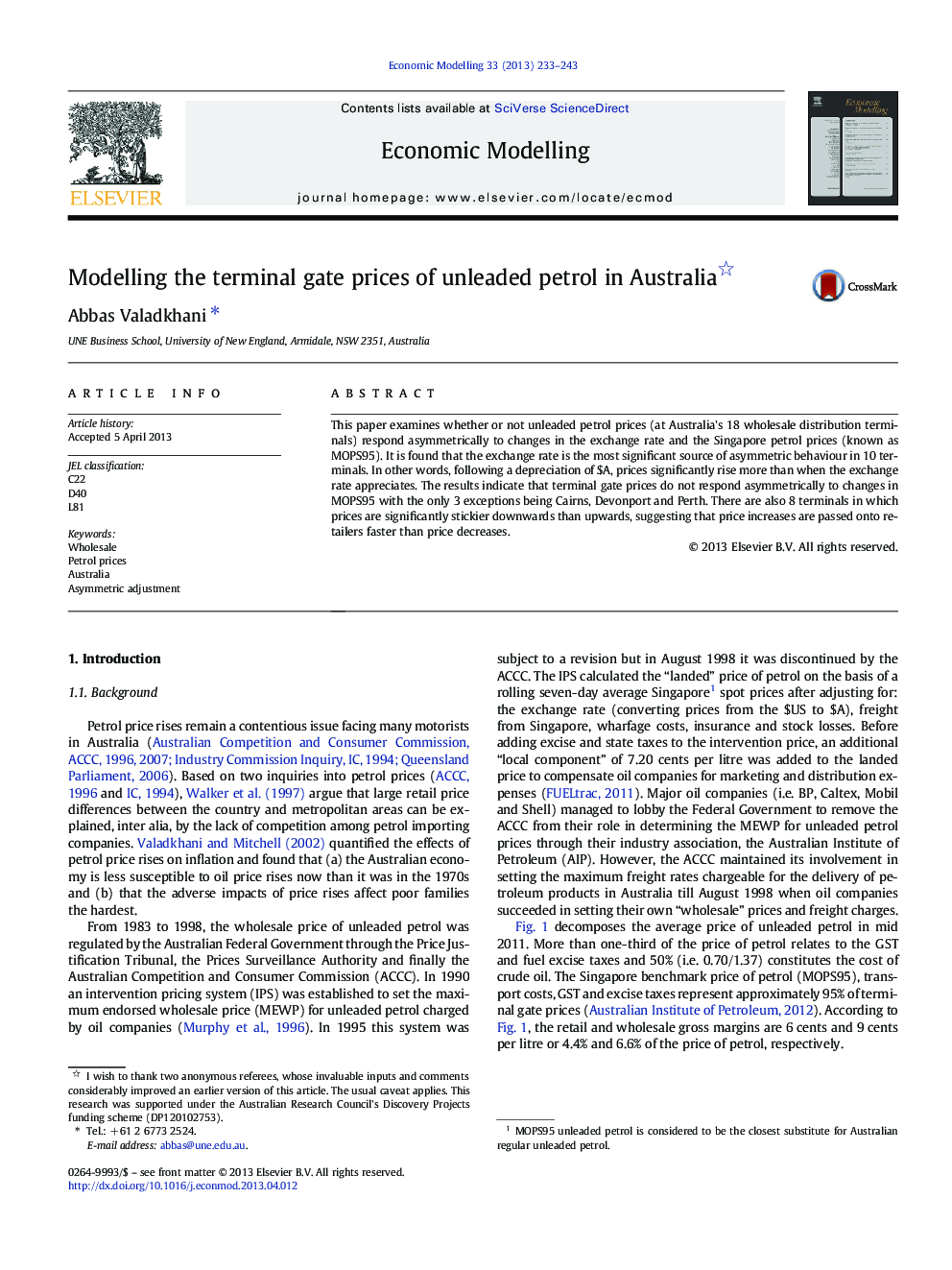| Article ID | Journal | Published Year | Pages | File Type |
|---|---|---|---|---|
| 5054446 | Economic Modelling | 2013 | 11 Pages |
Abstract
This paper examines whether or not unleaded petrol prices (at Australia's 18 wholesale distribution terminals) respond asymmetrically to changes in the exchange rate and the Singapore petrol prices (known as MOPS95). It is found that the exchange rate is the most significant source of asymmetric behaviour in 10 terminals. In other words, following a depreciation of $A, prices significantly rise more than when the exchange rate appreciates. The results indicate that terminal gate prices do not respond asymmetrically to changes in MOPS95 with the only 3 exceptions being Cairns, Devonport and Perth. There are also 8 terminals in which prices are significantly stickier downwards than upwards, suggesting that price increases are passed onto retailers faster than price decreases.
Related Topics
Social Sciences and Humanities
Economics, Econometrics and Finance
Economics and Econometrics
Authors
Abbas Valadkhani,
